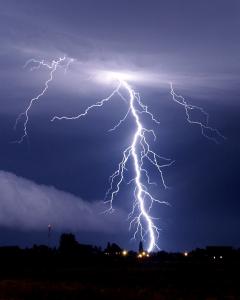
Christmas has always been my favorite holiday. The lights, the activities, the gifts, and the music, have always seemed to captivate me under its spell. For most of my life, I was told the celebration of Christmas was about the birthday of Jesus, and that is the principal religious story that is told. I don’t want to remove this season from these sacred stories. But what if Christmas is even bigger and deeper than that? What if Christmas is a celebration of the incarnation?
What is the Incarnation?
The definition of an incarnation is when a deity takes a human form. Christianity is one of the only major religions in the world where an incarnation plays a central role in the story of the faith. In most faiths and denominations associated with Christianity, it is the belief that God took human form in the person of Jesus Christ to take on a salvific mission. That mission, in my belief, is the teachings, death, and resurrection that have the ability to create the beloved community (Kin-dom of God) on earth as it is in heaven.
What scripture has to say
There are four different texts I would like to explore. Writers warning: to read beyond here may shatter some of your presuppositions about beloved Christmas stories and give entirely different context to them.
First, the poetic verses in Isaiah 9:1-7 (“For a Child has been born to us…” vs. 6 NRSV) are not a miraculous prophetic oracle specifically about Jesus written centuries before his time. In their own context, they are likely a coronation for righteous a King in Isaiah’s own time, likely King Hezekiah.
Second, are the gospel accounts of Jesus’ birth. Both accounts have lessons to speak in their own ways, but they can’t reasonably be reconciled as both being true. Matthews’s account has much more grit to it speaking of a massacre of innocents and a quick journey to Egypt for safety. Luke’s story is much calmer and takes place in very humble circumstances. It includes Jesus’ peasant mother conspiring to overthrow empires, a census of the Roman world (which there is no evidence), and shepherds (who were not reliable witnesses) being the first to witness Jesus’ birth. This quickly leads to Jesus’ circumcision – no mention of a flight to Egypt.
No mention of a massacre of male children is found in historical records in Judea. What these two stories do have in common aside from their obvious contradictions is their anti-imperial sentiment: Empire is bad, and the poor and humble are lifted up. They are dripping with a political sentiment that their original hearers would not have been able to ignore. As to the factuality of these stories, I cannot attest. I’m not sure it matters. These are stories about what the incarnation of Jesus means, not necessarily how it happened – as with much of the Gospel accounts. As Borg and Dominic-Crossan write, these stories are important parabolic overtures to the Gospels they are a part of.
John’s Gospel has the most explicit mention of the incarnation. Not surprising since John’s gospel has the highest Christology of all the Gospels. John does not have a birth narrative but instead has a poetic introduction of ‘the word (Greek: logos) becoming flesh.” This logos, in Greek, is literally the word, thought, logic, and reason that stood at the beginning of creation. The language John uses is supposed to take us back to that place of creation. Of the creator, the ‘reason’ out of which the world was created, coming to ‘dwell among us’ (John 1:14). This story too, places Jesus, the incarnated God in a world that does not recognize him and under the powers of his time (John 1:10-11).
Coming together
Putting together these stories as a mosaic rather than cramming them into one story makes them more beautiful. We have the Isaiah text, with its likely dual meaning both about King Hezekiah and fulfilled more fully in Jesus. We have Matthew’s gospel narrative telling of how humble peasants and foreigners thwarted the plans of a tyrant king in Matthew. We have Luke’s gospel where women contemplate how their children will overthrow an empire. And finally, John’s gospel speaks of the divine word (logos) becoming flesh.
What does it mean if God really became one of us and visited us in human form as Christianity teaches? Think of it as this: God coming into the messiness of our reality through childbirth. Learning how to walk. Stubbing a toe. Learning to read and write. Learning from the people around him. Perhaps stubbing his toe. Experiencing sexual attraction. Working for a living. Living under Roman oppression.
Entering the mystery
Many have tried to make Jesus perfect and sinless from birth. That is, without original sin. For a person who rejects this doctrine anyway, I have to say that if there was an incarnation, I believe it must have been real. Real to the point that the incarnated God must be relatable, and I simply cannot relate to a person that is absolutely flawless.
Perhaps this is the mystery of the incarnation. Most of Jesus’ life is shrouded in mystery. What we do know about Jesus is the values he stood for, and the kind of world that he wanted for himself and his followers to live in. It was the world that his ‘father’ had shared where we could all live together in peace.
So perhaps that is what Christmas means. It is its message of peace. Because that is the message Jesus brings. Peace on Earth, Goodwill to All.
It is my belief that the incarnation, like the gospels say, took place in the humblest of ways, where God sends God’s greatest gift to the world where only the humblest noticed. Because that’s how God works. It’s the poor and disaffected who are those who are oftentimes the most called to share and experience God’s work.
We celebrate God’s greatest gift at Christmas and his symbol of peace, not only now, but to come in a new reality where peace and justice will reign forever. May we celebrate the incarnation and these sacred stories. Merry Christmas!











